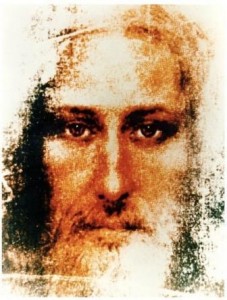Our souls were clothed with human flesh to experience through physical human senses. We are spirits in a material world. But our spiritual nature is too readily transcended by our automated existence in today’s high tech consumer age.
 When religions speak of a life of ‘sin’ they speak of a life distant from and not in relationship with God. Every religion has sought to bring us into contact with the Divine Presence, and so to transcend our physical limitations.
When religions speak of a life of ‘sin’ they speak of a life distant from and not in relationship with God. Every religion has sought to bring us into contact with the Divine Presence, and so to transcend our physical limitations.
Neuroscientists say that the average person has over 10 million different thoughts in a day. What is the content of these thoughts? What value do these thoughts bring to our actions. Our minds have become thought churning machines without regard to the value or quality of information being processed and produced. Modern minds are without equilibrium. Imagination without balance.
The Jesus Prayer is the means by which we can purify and elevate the qualitative character of our thoughts. A short and succinct prayer derived from the practices of the original fifth century Christian mystic hermits of the Sinai Desert. The prayer was acclaimed in the Greek Orthodox monastic classic, ‘ The Philokalia’. And for generations has been the engine of Orthodox monastic life, most pronounced on the Holy Mount of Athos.
I recite the prayer as “Jesus Christ, Son of the Living God, have mercy upon me a sinner”. The prayer is not a mantra and slight variations to the wording are inconsequential. The Christian essence of the prayer is that it encapsulates fundamental tenets of the Nicene Creed. The proclamation of Jesus as the Son of God, and therefore the Second Person of the Holy Trinity. In addition, the prayer reiterates the need for the remission of sin. Implicit therefore is the need for baptism of the Holy Spirit, and the recognition that Christ was crucified to redeem and redirect mankind from the path of Adam. Thus repentance is a second grace after baptism.
The esoteric dimension of all religion involves the recitation of the name of the Divine. The Hindus and Sikhs have an abundance of mantras which point to this Divine Principle. Whereas the Muslim Sufis repeat silently the name of God in the practice of Zikr. Similarly, in the Kabbalist tradition are recited Holy Names of God. Even in the non-theistic Buddhism the highest mantras refer to God, albeit to the Divine Spark from God which resides in man. For example, the famed Tibetan Buddhist mantra “Om Mani Padme Hum” refers to the jewel in the crown of the lotus. What can that be other than the apex mentis of the human soul, which is the Divine aspect of man. God is beyond translation, beyond words, beyond comprehension. The more science interprets the limitless complexity of the Creation, of our Universe, the more we should revere the infinite greatness of our Creator. Science cannot oppose the existence of God, it can only confirm His ineffable majesty.
The Jesus prayer is not a quantum frequency in the same way as a mantra. The power of the prayer is empowered by belief, reverence and devotion in Christ as the mediator between man and God. As He who offers divine mercy.
The prayer has four levels. First, we repeat the prayer physically with our lips. To facilitate discipline and continuity Orthodox monks will count the prayer by means of a ‘komvoschinoi’ or prayer rope. Usually comprising 33 prayer ‘stops’ to represent the Earthly years of the Saviour. The next and second stage is when we accomplish the ongoing mental repetition of the prayer. To the extent that it pervades all our daily activities. Wherever we are, whatever we are doing the prayer is occupying our mental faculty. The advanced or third level is when the prayer is repeated in the heart. Meaning that the prayer, the sweet name of Jesus is emerging from and enlightening the ‘nous’, which describes the fertile human capacity to reason. Only profound faith moves us to surrender our reasoning power to God. Inevitably we concomitantly surrender the entirety of our natural senses and supernatural faculties. Ultimately, we try to live according to Grace to allow this universal power to flow through in all moments.The one who has attained this level of practice will have overcome the passions of the flesh. He will be illuminated. And his aura will radiate with humility and the presence of holiness. In receipt of the Divine Gifts of the Holy Spirit.The mercy of Christ through His love for mankind will embed the prayer in our heart to the extent that it will continue to be recited by the soul even during sleep, and sometimes below the radar of our physical consciousness.
Beyond this, the highest manifestation of the prayer is when language itself is transcended. When the heart is so overflowing with the primordial divine or uncreated light. Where there is an outpouring of the Holy Spirit so that the humble human soul fully recognises its minuteness before The Creator and responds in terror, awe and complete absorption in His eternal, indescribable and infinite nature.This extremely rare gift is almost only ever witnessed in Saints.
We invoke constantly the name of Jesus Christ to remember God, but the conscious act of remembering our Creator must necessarily entail the remembering of ourselves as that which is remembering. Saying the prayer repetitively is an act of self awareness of remembrance of our spiritual nature. Of the fact that our flesh is no more than clothing for the spirit.
The Bible proclaims “Be still and know that I am God” Psalm 48. And this is the essence of this science of ‘Hesychasm’. The way of stilling and quieting the mind to let one be illuminated by the Holy Spirit rather than by the desires of the flesh.
The Jesus Prayer is a form of mindfulness or watchfulness, ‘nepsis’ in Christian terms. When our spiritual heart is overflowing with love for Christ then we can remain steadfast even affront any negative images arising in our subconscious. Thoughts of a demonic nature according to the Christian fathers arise as waves in our consciousness, but they are no longer overwhelming to us, that we act upon them. They cannot invade our reasoning capacity our spiritual heart.
In my experience the spiritual heart referred to by the hesychasts is not the physical heart. It is located in the Sinoatrial node at the upper right side of the heart chamber from wherein emanates the heartbeat. Life itself. Here is the physical portal to the seat of the soul.
The way to perform the Jesus Prayer is in rhythm with the heartbeat. The prayer is divided between in breath and out-breath. Thus as we breathe in “Jesus Christ, Son of the Living God”. On exhalation ” Have mercy upon me a sinner”. Whilst simultaneously being conscious of our internal heartbeat. By surrendering our breath and heartbeat to The Lord we are surrendering our entire being to God. He who is proprietor of our life and existence. This is true faith. Wholehearted trust in the mercy and grace of the Holy Trinity. We are all born as a reflection of the Divine Image of God, but the purpose of our life is the acquisition of Divine Likeness.
Apostle Paul having attained this theosis or union with God commented “I live; yet not I, but Christ lives in me” Galatians 2:20. Or according to St Simeon the New Theologian, “What lips could describe what has happened to me and what happens everyday? Even at night and in the midst of darkness I see trembling, Christ opening heaven for me and I behold how He Himself beholds me from there and He sees me here below together with the Father and the Spirit in the thrice holy light…And the light is one …And it illuminates my soul brighter than the sun and floods my spirit”.
The effect of the Jesus Prayer is to lengthen our breath which in itself produces unique health benefits. The key feature underlying the longevity of turtles, donkeys, and elephants is the extraordinary length of their breaths per minute.
Nonetheless, the words in themselves must not be empty, but stirred with faith and devotion in the Saviour. The prayer can then restore us to our natural state which is not to be overtaken by a desire only for perceptible things. But to enjoy and experience the celestial life in Christ; both mentally and spiritually.
In time the fruit of the prayer will be to instil within us a fear of God. In today’s liberal context, fearing God is not fashionable. Yet the fear of God is the opposite of fear of the world, and all that is within it. Instead we are programmed now to fear the loss of lives pleasures. Rather fear of God is parallel to falling into the bondage of the worlds limited pleasures. To losing our intimacy with God. We belong to God, and only God. We have no existence independent of Him. And so the Psalms say “The Lord’s love is with those that fear Him” Psalm 103, and that that “Blessed are those who fear The Lord ” Psalm 112.
Ultimately the prayer will cause the Holy Spirit to enliven the heart which constantly invokes the name of Christ with the gift of ecstasy. The soul as we said earlier does not restrict itself to a definite prayer but rather embellishes itself in an ecstasy of completeness in the midst of incomprehensible realities. St Isaac the Syrian expressed it as “The love of God is warm by nature, and when it falls on someone without measure, it makes that soul ecstatic; therefore the heart of the one who feels it can’t hold or bear it…The man’s face becomes flushed and full of joy, and his body is warmed; shame and fear leave him and he becomes ecstatic.”
The unitary presence of God is in all things. Ordinarily, this is a Christian prayer. But the Christ is universal. He is the God who is above and beyond all human religions, spiritual paths and traditions. So practice the Jesus Prayer sincerely from the spiritual heart and you will in time be enraptured in the experience of heavenly bliss. You will develop self-control and internal discipline. Having tamed the wildness of your mind you will find freedom in stillness. Gentleness in spirit, and cultivation of character. You will live in God’s grace having fulfilled the Apostle Paul’s sanction to “pray without ceasing”.
